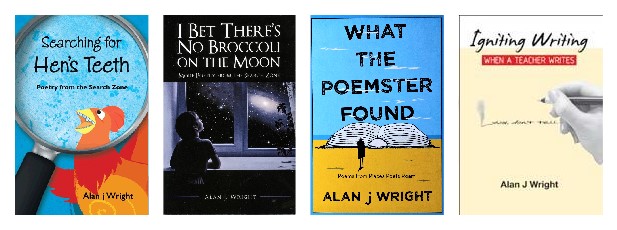The inspiration for this poem came from idioms. In this case, I used idioms involving people's names. My father's generation frequently used such idioms in everyday language. Clearly my exposure to such idiomatic language had an influence. It was fun to play around with these wonderful old terms. Hope you enjoy the word play...
Name Dropper
My Dad knows lots of people
I reckon
He often tells me Bob’s your uncle
But I don’t know any Bob’s
He believes Scott is great
He’s always saying
Great Scott!
He thinks Fanny Adams is sweet
And someone called Nelly is nervous
Last week he told me to run like Billy O
How does Billy O run?
That’s what I want to know
Dad does a lot of things for a fellow called Pete
Sake
And he thinks Alec is smart because he’s always
saying
What a smart Alec he is
He thinks Ann is raggedy
And Simon is simple
Freddie is blind
But even he can see
Which I find a bit confusing
And somehow Johnny is on the spot
And Jack is in a box
Maybe it’s the same box Pandora has
And Dad often says he doesn’t want to open that one
Which I find a bit confusing
So do my mates
Tom, Dick and Harry


Comments
Post a Comment